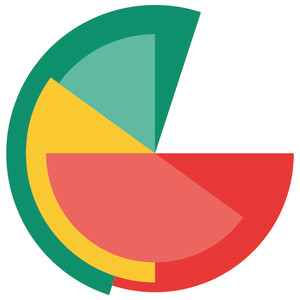Whenever basic income is discussed, assumptions are Whenever basic income is discussed, assumptions are made and misconceptions are perpetuated. Our goal is to clarify the most common misunderstandings—and share two key truths.
Five misconceptions about basic income
"A universal basic income gives money to people who don’t need it."
A universal basic income isn’t an additional payment, but rather an unconditional advance. While it is initially paid to everyone, its effect is still linked to need and income, but on a retrospective basis. For example, high earners will have their basic income deducted through taxes. In the end, the money goes primarily to those who need it most.
"Spain and Italy have already introduced a basic income."
Due to translation errors, the term "basic income" has been used in recent years to refer to what is actually a basic social security measure. What has been implemented permanently in Italy and temporarily in Spain during the coronavirus crisis are low-level social benefits with access restrictions and conditions.
"Everything will become more expensive with a basic income!"
Since a basic income isn’t additional money, it doesn’t directly cause inflation. However, prices in certain sectors could increase. For example, employees in low-wage industries with poor working conditions might no longer tolerate exploitation, leading to higher wages in these sectors, which could make products more expensive.
"Work always pays off."
Many people in low-wage jobs today actually have less disposable income than those who aren’t working. The low-wage sector is expanding, and those receiving assistance payments are often restricted in how much additional income they can earn, leaving them with little incentive to change their situation. A basic income changes this dynamic: everyone has enough, and those who work can earn more.
"A basic income has already been tested in Berlin."
In 2019, the Berlin Senate decided to launch a pilot project for a "solidarity basic income." However, this initiative is not a universal basic income; it resembles more of a modern version of Germany’s "Ein-Euro-Job" (“one-euro jobs”) program, where participants are employed in low-wage, government-subsidized roles.
Four assumptions about basic income
"Hartz IV is already a form of basic income."
(Note:Hartz IV refers to the German unemployment benefit paid after the first 12-18 months of unemployment.)
Yes, but it’s not truly unconditional. If you fail to comply with the rules, the benefit can be reduced or even suspended entirely. Similarly, Hartz IV is not unconditionally selected; you must first prove your eligibility. The total amount you receive—comprising the standard rate of €446, rent (approximately €400), and health insurance (around €345)—adds up to a basic income level.
"A basic income can't be financed."
A basic income is a monthly cash payment that doesn’t need to be repaid, except by those who contribute more than the amount through taxes. Most people in Germany already have more than €1,200 per month available, even without a basic income. For everyone else, the basic income simply replaces traditional social benefits, but without the requirement to repay it.
"There already is a basic pension, parental allowance, unemployment benefit, and child allowance."
Half of all people in Germany already benefit from private or public transfer benefits, while the other half are in gainful employment. Why don't we also guarantee a secure income to those who want to and are able to work? Why should this be linked to age, parenthood, or unemployment–and not to a fundamental right?
"A basic income would abolish the welfare state."
No basic income model seeks to eliminate the welfare state. Even with a basic income, some people would still need more than €1,200 per month, while others would require additional support, such as for education, family care, or childcare. However, a basic income could simplify and replace many existing financial transfers, like BAföG (education support), Hartz IV, unemployment benefits, basic pensions, child allowances, parental leave payments, start-up grants, and, to some extent, pensions.
Two truths about basic income
"A universal basic income is not a cure-all."
A basic income won't solve all of our problems, but it will empower us to address them ourselves. A basic income itself carries no ideology and offers no ready-made answers. Instead, it creates the opportunities and personal freedom needed to drive change.
"A basic income doesn’t mean more money, but more security."
While everyone would initially receive more money each month—1,200 euros—with a genuine basic income, they would also pay slightly more in taxes. As a result, most people's overall income would remain roughly the same. However, this shift has one crucial effect: it provides psychological security for everyone.

